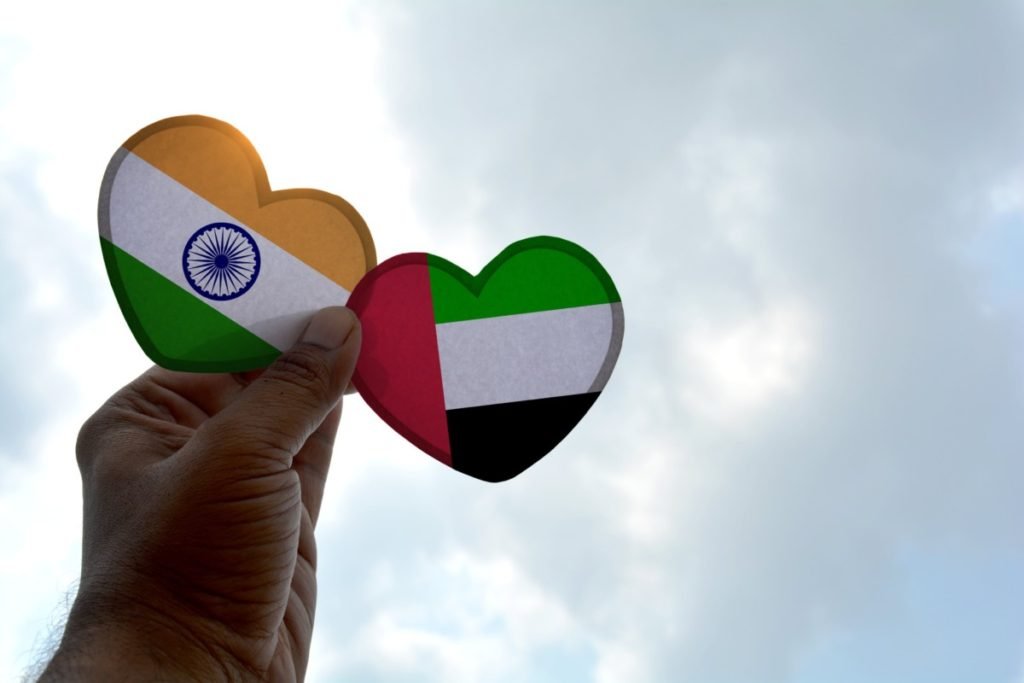The UAE and India have held “productive” talks on the Comprehensive Economic Partnership Agreement, which aims to boost the value of non-oil trade between the two nations to $100 billion in five years.
The UAE delegation, led by Thani Al Zeyoudi, Minister of State for Foreign Trade, began four days of talks in India last week as the two sides seek ways to strengthen economic ties, the Ministry of Economy said.
UAE officials held several rounds of discussions including talks with India’s Finance Minister Nirmala Sitharaman, Commerce and Industry Minister Piyush Goyal, Minister of Civil Aviation Jyotiraditya Scindia, and Minister of Electronics and Information Technology Ashwini Vaishnaw.
The CEPA should be seen as a natural extension of the long-standing relationship between the two countries, Mr Al Zeyoudi said.
“The CEPA builds on our historic ties by laying the foundation for a mutually beneficial partnership that creates new jobs, promotes foreign direct investment, empowers entrepreneurs, attracts talent, and accelerates our knowledge-driven economies. It will also drive economic growth and prosperity across the region.”
The UAE minister emphasized the rapid growth of the UAE’s FinTech sector during his meeting with Ms Sitharaman and said the two sides should explore how the CEPA can further boost engagement in the sector.
The UAE’s FinTech sector is expected grow 20 percent annually to reach $305bn by 2025. India’s FinTech sector, currently valued at $31bn, is expected to hit $84bn over the same period, according to government data.
The UAE’s “Projects of the 50” initiative – which seeks to attract global talent and accelerate the adoption of Fourth Industrial Revolution technologies into manufacturing, healthcare, smart services logistics, and renewable energy – provides opportunities for investment that can be unlocked through the CEPA, Mr. Al Zeyoudi said.
The two countries are also exploring ways to boost bilateral trade. India is already the UAE’s second-largest trading partner, accounting for 9 percent of the Emirates’ total foreign trade and 13 percent of non-oil exports.
Bilateral trade between the two nations grew by more than 70 percent in the first six months of this year to $21bn. The value of the UAE’s non-oil trade with India may rise to more than $100bn within the five years of the CEPA being signed, from pre-pandemic levels of $40bn, the ministry said last week.
The UAE, the commercial and trading hub of the Middle East, has maintained a strong trade momentum despite pandemic headwinds. It is keen to further strengthen its relations with key trading partners as the global economy recovers and trade rebounds.
This is the second CEPA agreement that Mr. Al Zeyoudi has commenced talks on this month, following negotiations with Indonesia.
In his meeting with India’s civil aviation minister, Mr. Al Zeyoudi outlined the importance of the sector and the potential for greater connectivity between the two nations, which can boost both trade and tourism.
They also discussed the potential for increasing seat capacity for UAE airlines flying from India during the forthcoming Expo 2020 Dubai, as well as expanding the number of airports offering direct services to the UAE, the Ministry of Economy said.
(Except for the headline, this story has not been edited by The Finance World staff and is published from a syndicated feed.)

